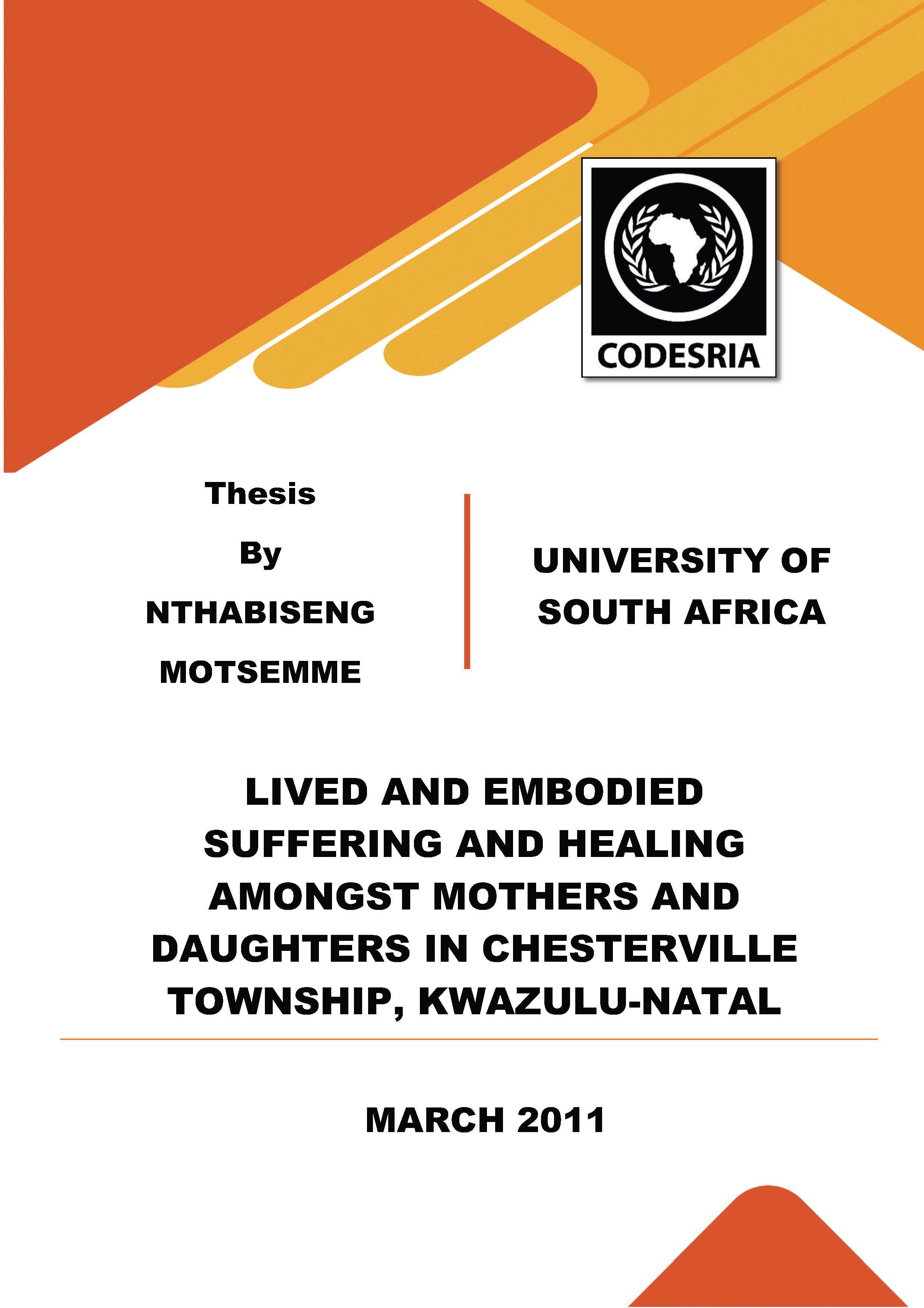LIVED AND EMBODIED SUFFERING AND HEALING AMONGST MOTHERS AND DAUGHTERS IN CHESTERVILLE TOWNSHIP, KWAZULU-NATAL
Mots-clés :
SUFFERING, MOTHERS, DAUGHTERS, CHESTERVILLE TOWNSHIPSynopsis
This is a transdisciplinary study of how ‘popular cultures of survival’ regenerate and rehumanise township residents and communities whose social fabric and intergenerational bonds have been violently torn by endemic suffering. I focus specifically on township mothers’ and daughters’ lifeworlds with the aim of recentering these marginalised lives so that they can inform us about retheorising marginality and in this way enrich our limited academic discourses on the subjectivities of poor urban African women. Located in the interdisciplinary field of popular culture studies, the study draws on and synthesises theoretical insights from a number of disciplines such as sociology, political-science, anthropology, history, literary studies, womanist and feminist studies and indigenous studies, while using a variety of methods and sources such as interviews, reports, observation,
newspapers, field notes, photo-albums, academic articles and embodied expressions to create a unique theory on the lived and embodied suffering and healing experiences of township women. I have called this situated conceptual framework that is theoretically aligned to African womanism and existential phenomenology, but principally fashioned out of township mothers and daughters ways of understanding the world and their place in it--Township mothers’ and daughters’ lived and embodied ‘cultures of survival’. And in order to surface their popular cultural survival strategies I have adopted an African womanist interpretative phenomenological methodological framework. This suggested conceptual and methodological framework has allowed me to creatively explore the dialectical tensions of the everyday township philosophies, aesthetics and moralities of
‘ukuphanta’, to hustle and ‘ukuhlonipha’, to respect, and show how they create the moral-existential ground for township mothers and daughters not only to continue to survive, but to reclaim lives of dignity and sensuality amidst repeated negation and historical hardships.
Téléchargements
Références
Abrahams, Y. 2000. ‘Colonialism, Dysfunction and Dysjuncture: The Histiography of Sara Bartman’, PhD dissertation, University of Cape Town.
Abrahams Y. 2004. ‘Writing history without hatred, for healing: Sara Bartman in the context of colonial slave women in the Cape, ca. 1788-1810’. Paper presented at the conference ‘Ten Years of Democracy in Southern Africa: Historical Achievement, Present State, Future Prospects’, University of South Africa, Pretoria, August.
Abu-Lughod, L. 1993. Writing Women’s Worlds: Bedouin Stories. University of California Press, Berkeley and London.
Abu-Lughod, L. 1986. Veiled Sentiments: Honor and Poetry in a Bedouin Society, University of California Press, Berkeley and Los Angeles.
Adams, R.L. 2006. ‘History at the crossroads: Vodu and the Modernization of the Dominican Borderlands’, in Globalisation and Race: Transformations in the Cultural Production of Blackness, Clarke, K.M. and Thomas, D.A. (eds), Duke University Press, Durham and London.






